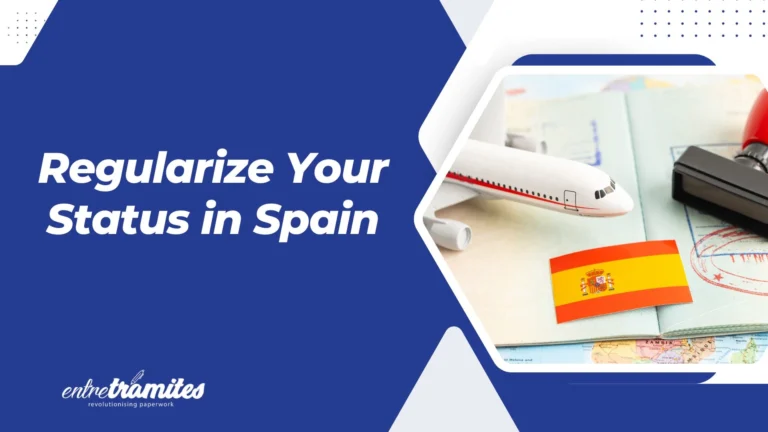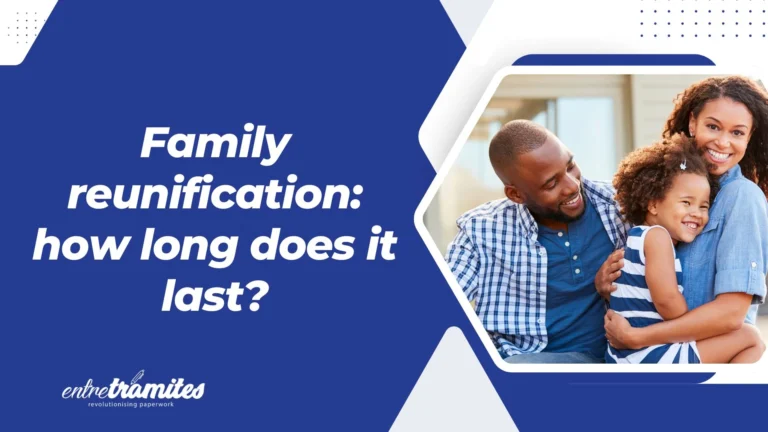Obtaining a residence and work permit in Spain is the fundamental first step for many non-EU citizens aiming to start a professional life in the country. The process is not universal; various permits are tailored to different situations, ranging from highly qualified professionals to seasonal workers.
Understanding the available options, the specific requirements for each, and the correct administrative procedure is essential for a successful application.
This guide details the main types of Spanish work permits and the steps involved in obtaining them, based on Organic Law 4/2000 (on the rights and freedoms of foreigners in Spain) and the Foreigners Regulations (Reglamento de Extranjería).
Main Types of Residence and Work Permits in Spain
Spanish regulations contemplate several work permit modalities, each designed for a specific worker profile. The most common types are managed either through the General Foreigners Regime or the Entrepreneur’s Law (Law 14/2013).
1. Employee Residence and Work Permit (Por Cuenta Ajena)
This is the most common permit for a foreign worker who has a job offer in Spain. The employer initiates the process.
- Job Offer: A signed employment contract (contrato de trabajo) from a Spanish employer.
- National Employment Situation: In many cases (but not all), the job must be on the list of “difficult-to-cover occupations” (difícil cobertura) or the company must demonstrate that it has failed to find a national or EU candidate. This requirement is waived for certain positions or in specific cases.
- Qualification/Experience: The worker must possess the professional qualification or required experience for the specific role.
2. Self-Employed Residence and Work Permit (Por Cuenta Propia)
Aimed at those who wish to establish themselves as sole traders (autónomos) or start a business in Spain.
- Business Plan (Plan de Negocio): A detailed viability plan for the project, outlining the anticipated investment, expected profitability, and jobs to be created.
- Economic Investment: Proof of sufficient funds available to carry out the project.
- Professional Qualification: Possession of the necessary training or experience for the business activity to be undertaken.
3. Highly Qualified Professional Residence Permit (Law 14/2013)
This permit is designed to attract foreign talent to Spain, focusing on workers with a high level of training or experience. It falls under a fast-track regime (the Entrepreneur’s Law).
- Key Advantage: It is exempt from the national employment situation requirement and offers a faster processing time.
- Target: Professionals with a university degree or at least three years of comparable professional experience, hired for a senior or technical position with a salary exceeding specific thresholds.
4. Researcher Residence and Work Permit
For individuals coming to Spain to conduct research or development projects. This permit also offers a streamlined process and is often easier to renew.
5. Seasonal or Temporary Work Permit (De Temporada)
Allows non-EU citizens to work in Spain for a limited period, typically for agricultural campaigns or specific seasonal activities. It requires a job offer and a guarantee of return to the country of origin upon contract completion.
General Requirements and Application Process
Regardless of the type of residence and work permit sought, there are common requirements that every applicant must meet:
- Non-EU/EEA/Swiss Citizenship: Must not be a citizen of an EU country, the European Economic Area, or Switzerland.
- Legal Status: Must not be irregularly present in Spain.
- Criminal Record: Must lack criminal records in Spain and in all previous countries of residence for the past five years.
- Entry Prohibition: Must not have an entry ban into Spain or appear as ‘rejectable’ in the territorial area of countries with which Spain has an agreement.
- Health Insurance: Must have public or private health insurance valid in Spain.
- Fees: Must pay the corresponding administrative fees (tasas).
The application process is typically initiated by the employer or the applicant (for self-employed) at the Oficina de Extranjería (Foreigners Office) in the province where the work will take place.
- Authorization Approval: Once the work authorization is approved by the Oficina de Extranjería in Spain, the applicant must then proceed to the Spanish Consulate or Embassy in their country of origin.
- Visa Application: The purpose is to apply for the residence and work visa. This visa is the actual authorization that allows the applicant to travel to Spain and begin the process of obtaining their physical Foreigner Identity Card (TIE).
- TIE Formalization (In Spain): Once in Spain, the applicant must formally obtain the TIE within a period of one month after entry.
Processing Times and Legal Deadlines
Processing times vary depending on the type of residence and work permit and the workload of the Oficina de Extranjería:

Administrative Silence (Silencio Administrativo): The administration is legally obliged to notify the resolution. If no response is received after the maximum legal period, the application is generally considered rejected (silencio administrativo negativo). This rejection can, however, be appealed.
Obtaining a residence and work permit in Spain is a structured process that demands patience and accurate documentation. Seeking advice from experts in immigration law (extranjería) can significantly streamline the process, help avoid common errors, and ensure a smooth start to your professional life in Spain.
If you need personalized assistance, at Entre Trámites we offer management and advisory services on immigration matters. You can contact us through this contact form for us to call you, or if you prefer, you can schedule a free consultation or write to us on WhatsApp.





